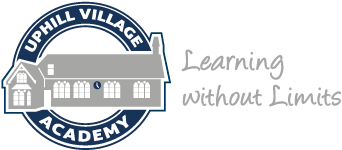English
We believe English is a vital way of communicating in school, in public life and internationally. The body of Literature in English is rich and influential reflecting the experience of people from many countries and times. In studying English at Uphill, children will develop skills in oracy, reading and writing. It will enable them to express themselves creatively and imaginatively and eloquently – and to build strong world knowledge that helps them connect ideas and generate new ones. We want our children to become enthusiastic and critical readers of stories, knowledge, poetry, drama, as well as text media. We want them to have a love and enjoyment of all types of communication, especially reading.
The study of English at Uphill helps our children understand how language works across the whole of our school curriculum by looking at its structures, origins, subject-specific vocabulary and patterns. Using this knowledge, our children can choose and adapt what they write in differing situations to help make their own lives; and those of others’, better.
How we develop writers
Developing Handwriting
We use a fully cursive handwriting style where every lower case letter starts on the line with a lead in stroke and leads out with an exit stroke. Our aim is that every child will be able to write clearly, fluently and quickly so that they can cope with the demands of everyday life.
We have layered targets throughout the school that all the children will be working through, regardless of age or class.
There has been much research into the relationship between handwriting, spelling and text production. Writing requires so many activities to take place within the brain including the generation of ideas, word choice, sequencing ideas, monitoring accuracy and communicating ideas clearly. If handwriting is fluent and automatic, it allows children to concentrate on the other aspects of writing, in turn producing a higher quality piece of work. It also enables them to write faster.
Our whole school handwriting target is to improve the standard of pupils’ handwriting and presentation across the school.
Progression
| Steps | Success Criteria |
| 1 |
|
| 2 |
|
| 3 |
|
| 4 |
|
| 5 |
|
| 6 |
|
| 7 |
|
Unfortunately, we cannot demonstrate the fully cursive writing style as it needs a particular computer programme to be able to view it electronically. However, if a parent wishes to receive a copy of the expectations of handwriting for their child’s year group, please see your class teacher who will be happy to give you the information and examples of the writing style expected.



